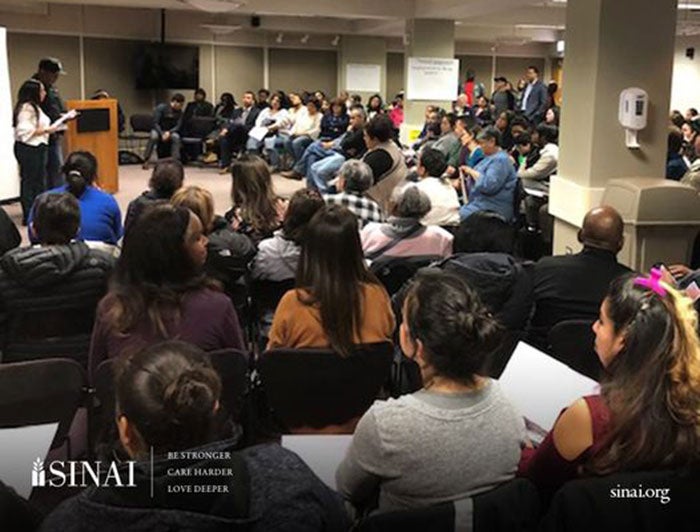Role of Hospitals: Sinai Chicago

The communities that Sinai Chicago serves face a number of challenging issues that affect their health. About 45% of Sinai Chicago patients face food insecurity, and 25% report experiencing post-traumatic stress disorder to due to community violence. Chronic diseases such as diabetes and pediatric asthma disproportionately affect community members and are significantly higher than the national average.
The health system has long focused on community health as a way to improve patient outcomes in many of the city’s historically marginalized neighborhoods. For more than 25 years, Sinai Chicago has operated the Sinai Community Institute, which serves approximately 14,000 families each year by developing effective community-based health and social service programs to improve health and well-being by addressing social, economic and environmental factors. In addition, the Sinai Urban Health Institute works in partnership with community members and organizations to document disparities and meet the shared goal of a healthier community.
To address a lack of affordable housing in Chicago’s North Lawndale neighborhood, Sinai Chicago partnered with The Habitat Company, Chicago Housing Authority, Cinespace Chicago Film Studios and the city to transform 10 acres of mostly vacant property into 12,000 square feet of commercial and retail space plus hundreds of mixed-income housing units. This project represents a meaningful investment in a long-divested community.
Read more about Sinai Chicago and its role as a metropolitan anchor hospital in this AHA case study.

